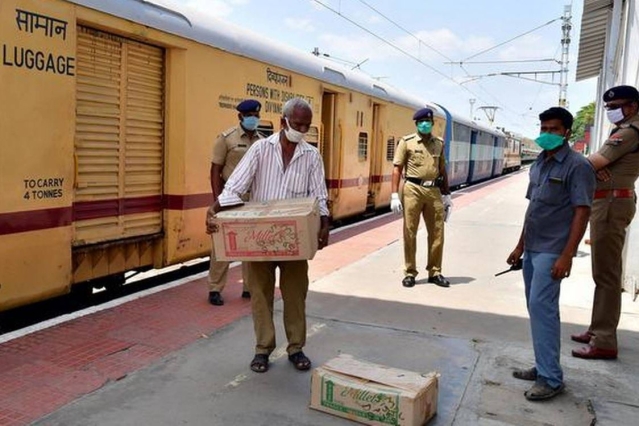Exploring the possibilities of expanding the business of private parcel services through rail network, Indian Railways has come forward to offer reliable, fast, affordable and easy-to-handle parcel services for logistics and courier agencies.
In a meeting with top courier service agencies to facilitate partnership with the freight and parcel service, Railway Minister Piyush Goyal has said that win-win solutions needed to be there to ensure a sustainable business development for all.
During the meeting it was informed that the railways would offer every possible help to boost the parcel services for logistics and courier agencies.
The railways has run a total of 5,292 parcel trains from 22 March to 2 April this year out of which 5,139 have been time-tabled trains.
The railways has earned Rs 116.19 crore from the loading of 318,453 tonnes of consignments in these trains.
It is worth mentioning that the railways freight loading for the month of August 2020 with total 94.33 million tonnes of freight loading surpasses last year’s loading for the same month.
A total of 141,049 rakes with 451.38 million tonnes of freight was loaded by the railways from 25 March until 1 September this year.
A number of concessions and discounts are also being offered by the railways to make freight movement very attractive. Improvements in freight movements will be institutionalised and incorporated in the upcoming zero-based time table.
On mission mode, Indian Railways achieved a significant milestone of pulling freight traffic ahead. Indian Railways Freight loading for the month of August 2020 surpasses last year’s loading for the same month.
In the month of August 2020, Indian Railways loading was 94.33 million tonnes which is 3.31 million tonnes higher compared to last year’s loading for the same month (91.02 million tonnes).
The August loading of 94.33 million tonnes includes 40.49 million tonnes of coal, 12.46 million tonnes of iron ore, 6.24 million tonnes of foodgrains, 5.32 million tonnes of fertilisers, 4.63 million tonnes of cement (excluding clinker), and 3.2 million tonnes of mineral oil.
It may be noted that improvements in freight movements will be institutionalised and incorporated in the upcoming zero-based time table.
The railways has offered a number of concessions and discounts to attract more loadings. The national transporter has turned the Covid-19 situation into an opportunity to improve all-round efficiency and performance.


